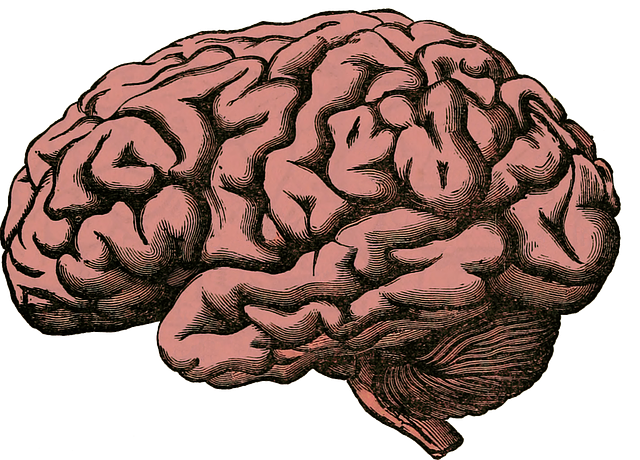Crisis intervention is a critical component of mental health care, focusing on immediate support for severe emotional distress or potential disasters. In settings like Lakewood Drug Abuse-Substance Abuse Therapy, this involves assessing, understanding root causes, and implementing evidence-based strategies such as risk management planning, positive thinking, and stress management techniques to empower individuals for long-term recovery. Recognizing behavioral and physical cues of substance abuse is key, as co-occurring disorders are common. A holistic approach integrating Lakewood Drug Abuse-Substance Abuse Therapy with mental wellness resources normalizes conversations around emotional well-being and equips individuals with coping strategies. Post-crisis care, including specialized programs, peer support groups, and aftercare planning, is essential for recovery, along with preventative measures like self-care routine development and mental health policy analysis.
“In times of crisis, effective intervention can be a lifeline. This comprehensive guide explores crisis intervention strategies, focusing on substance abuse and co-occurring disorders. We delve into the definition and purpose behind these interventions, providing insights to identify at-risk individuals.
Key components for successful strategies are unveiled, offering a roadmap for professionals and caregivers. Furthermore, the article emphasizes post-crisis care and prevention measures, highlighting the importance of supporting recovery. Discover essential steps to navigate these challenging situations, drawing from expert practices in Lakewood Drug Abuse-Substance Abuse Therapy.”
- Understanding Crisis Intervention: A Definition and Purpose
- Identifying Signs of Substance Abuse and Co-occurring Disorders
- Key Components of Effective Crisis Intervention Strategies
- Implementing and Supporting Recovery: Post-Crisis Care and Prevention Measures
Understanding Crisis Intervention: A Definition and Purpose

Crisis intervention refers to a range of strategies and techniques designed to provide immediate support and guidance during times of intense emotional distress or impending disaster. It is a critical component of mental health care, focusing on helping individuals navigate and overcome seemingly insurmountable challenges. The primary purpose of crisis intervention is to stabilize the person in crisis, ensure their safety, and facilitate a return to a state of balance and functionality.
This process involves assessing the individual’s situation, understanding the nature of their crisis, and implementing evidence-based interventions tailored to their unique needs. For instance, in cases of substance abuse or co-occurring mental health disorders, like those often seen in Lakewood Drug Abuse-Substance Abuse Therapy settings, crisis intervention strategies may include risk management planning for mental health professionals, encouraging positive thinking, and teaching effective stress management techniques. Such interventions aim to empower individuals with coping mechanisms, fostering resilience and promoting long-term recovery.
Identifying Signs of Substance Abuse and Co-occurring Disorders

Recognizing the signs of substance abuse is a critical step in offering effective crisis intervention. In many cases, individuals battling drug or alcohol addiction may display noticeable changes in their behavior and appearance. These signs can include sudden shifts in mood, increased secrecy, avoidance of social interactions, and significant alterations in academic or work performance. For instance, a friend or loved one in Lakewood might start missing appointments or showing up to gatherings visibly affected, indicating potential substance abuse.
Co-occurring disorders, where mental health issues accompany addiction, are also common. Signs may include severe anxiety, depression, or sudden mood swings. Encouraging open conversations and promoting self-care practices like meditation, exercise, and stress reduction methods can help. Emotional intelligence plays a vital role in identifying these subtle cues and offering support. By fostering an environment that encourages individuals to seek help without judgment, we can facilitate access to Substance Abuse Therapy in Lakewood for those in need.
Key Components of Effective Crisis Intervention Strategies

Effective crisis intervention strategies are built on several key components that ensure a holistic approach to addressing acute distress. Firstly, Lakewood Drug Abuse-Substance Abuse Therapy plays a pivotal role in mitigating the immediate danger while facilitating long-term recovery. This involves assessing the individual’s substance use history and integrating evidence-based therapeutic techniques tailored to their needs. Secondly, fostering an environment of mental wellness through the Mental Wellness Podcast Series Production can be instrumental. These podcasts offer accessible platforms for disseminating Mind Over Matter Principles, encouraging self-care practices, and normalizing conversations around emotional well-being.
Moreover, crisis interventions should incorporate Emotional Well-being Promotion Techniques to help individuals process and manage their emotions effectively. This includes teaching coping strategies, promoting active listening, and fostering a sense of safety and trust. By combining these elements, interventionists can create a supportive space that empowers individuals to navigate challenging situations, make informed decisions, and cultivate resilience for lasting mental health.
Implementing and Supporting Recovery: Post-Crisis Care and Prevention Measures

Implementing post-crisis care is a vital step in supporting individuals’ recovery from drug abuse or substance use disorders. Lakewood Drug Abuse-Substance Abuse Therapy centers play a crucial role here, offering specialized programs tailored to address the unique needs of those affected. This phase involves comprehensive support, including individual and group therapy sessions, peer support groups, and aftercare planning. By providing a safe space for individuals to process their experiences, therapists facilitate healing and empower clients with coping strategies to manage triggers and challenges.
Preventative measures are equally important in breaking the cycle of addiction. Encouraging clients to develop a Self-Care Routine Development for Better Mental Health can significantly contribute to long-term recovery. This includes teaching stress management techniques, promoting healthy lifestyle choices, and fostering social connections. Additionally, Mental Health Policy Analysis and Advocacy is essential to ensure that individuals have access to evidence-based treatments and resources, as well as to advocate for policies that support Depression Prevention and early intervention services in the community.
Crisis intervention strategies play a vital role in helping individuals navigate through substance abuse and co-occurring disorders. By understanding the key components outlined in this article, such as early identification of signs, effective guidance during crises, and post-crisis care, we can foster a supportive environment for recovery. Lakewood Drug Abuse-Substance Abuse Therapy offers valuable resources and expertise to ensure that those facing these challenges receive the necessary support to transform their lives. Ultimately, prioritizing crisis intervention strategies is essential in promoting well-being and preventing future crises.














